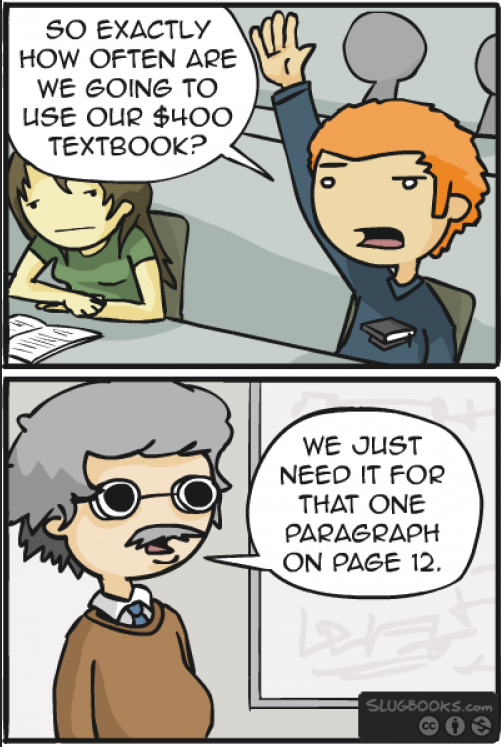The US is strange
Comic Strips
Comic Strips is a community for those who love comic stories.
The rules are simple:
- The post can be a single image, an image gallery, or a link to a specific comic hosted on another site (the author's website, for instance).
- The comic must be a complete story.
- If it is an external link, it must be to a specific story, not to the root of the site.
- You may post comics from others or your own.
- If you are posting a comic of your own, a maximum of one per week is allowed (I know, your comics are great, but this rule helps avoid spam).
- The comic can be in any language, but if it's not in English, OP must include an English translation in the post's 'body' field (note: you don't need to select a specific language when posting a comic).
- Politeness.
- Adult content is not allowed. This community aims to be fun for people of all ages.
Web of links
- [email protected]: "I use Arch btw"
- [email protected]: memes (you don't say!)
It's all very normal when you recognize how much of our institutional structure is corrupted by profit-seeking.
Its no different than a police officer taking a bribe to let you out of a speeding ticket. Or a customs official demanding a kick-back to let a ship unload its cargo. Or a mafia goon shaking down a local storefront for "protection" money. Just institutionalized so there's no risk of being punished.
There's nothing strange about unfettered greed. The only strange part is that it isn't (technically) a feudal system going along with it.
is that price an exaggeration or do the texts in the US actually cost that much?
My most expensive college book was $450 and we were even told it was required but there was only 1 chapter that would be referenced nothing else.
Sometimes I think
While this is fairly common for what is literally used in class, the intent is generally for the student to read and study the rest of the text that gives additional context beyond what is covered in class. An opportunity to learn in addition to the required work.
Most teachers do not do a very good job of conveying this.
The intent is to extract money from vulnerable young people, which is why they change the problem sets every year without changing the educational content.
That is the intent of the publishers when they change frequently. If the teacher/professor gets a cut then they might share the same incentive to update regularly.
But at the core from a teaching perspective, the general reason for assigning books that might only have a portion used in class is because the teacher thinks the book as a whole will be helpful in understanding the content. Otherwise they would just recreate their own version of that chunk of information if they aren't getting a cut from sales.
In later years I gave up on buying textbooks entirely. On the rare cases that the book actually mattered I just took the hit to my grade and made it up elsewhere. I don't think it ever cost me more than half a letter grade in the long run.
Had a professor in a freshman physics class tell us during a study hall that the best way to learn physics is to go into the library and pull down all the various copies of all the different physics books you could find on the shelves and just do problems in the books until you got the hang of a particular kind of scenario being tested on.
The fact that you're getting charged $400 for a textbook is bullshit. But the idea that you're in a class on a given subject and you just don't need to bother reading the material in advance of the lecture is also bullshit.
College textbooks are like the old games where they asked you to look something up in the manual to unlock all the features.
Does this happen worldwide or only certain courses?
I don't remember having to buy any textbooks in university for my CS course.
